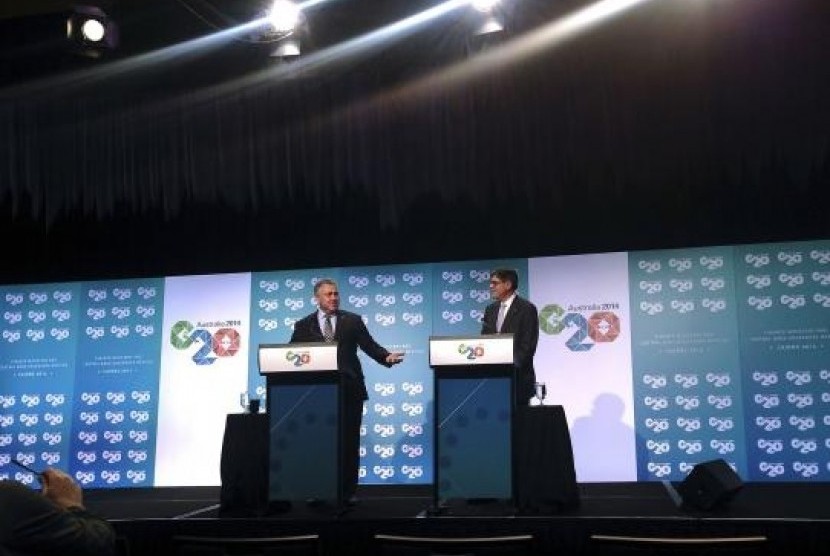REPUBLIKA.CO.ID, CAIRNS - As the Group of 20 leading economies meet to change no less than the "destiny" of the global economy, members remain divided on how to get there with Germany pushing back at US calls for more government stimulus.
Opening the meeting of finance ministers and central bankers, Australian Treasurer Joe Hockey outlined an ambitious agenda of boosting world growth, fireproofing the global banking system and closing tax loopholes for giant multi-nationals.
"We have the opportunity to change the destiny of the global economy," said Hockey, who back in February launched a campaign to add 2 percentage points to world growth by 2018 as part of Australia's presidency of the G20.
That goal has seemed ever more distant as members from China to Japan, Germany and Russia have all stumbled in recent months. Just this week, the Organization for Economic Cooperation and Development (OECD) slashed its growth forecasts for most major economies.
A call from US Treasury Secretary Jack Lew for the euro zone and Japan to do more to boost demand and revive activity, signaling out Germany as having scope to do much more thanks to its burgeoning trade surplus, drew a cool response.
"We will not agree on short-sighted stimuli," a German G20 delegate said, arguing that in most countries debt was still too high to allow for increased spending.
Berlin has been under intense pressure to allow the euro zone to ease back on fiscal austerity and to stimulate its economy through more government spending or tax cuts.
The outlook for growth has not been helped by geopolitical tensions, from fighting in the Middle East to the strife between Russia and Ukraine.


